Managing Weight After Body Contouring Plastic Surgery
Plastic surgery patients who get body contouring procedures such as liposuction and tummy tucks are often understandably concerned about possible weight gains after their procedure. They understand that, as plastic surgeons should always explain, these surgeries make us look and feel more physically fit but are not intended for weight loss. While liposuction and tummy tucks address the fat outside of the abdominal cavity and the abdominal skin, the fat inside the abdominal cavity around the organs must be addressed by dieting.
Patients therefore often express concerns about how they will maintain their weight as they get older and what might happen if they gain too much weight over time. It’s an appropriate concern but issues are infrequent and very manageable. The truth is that the vast majority of plastic surgery patients can control their weight following the procedure, though small weight gains inevitably occur. Moreover, some early research indicates that liposuction may actually have a positive long-term impact on BMI (body mass index).* Regardless, significantly problematic weight gains after body contouring procedures are unusual.
Post-Operative Weight Gain: How Much is Too Much?
Modest weight gains following body contouring are not really a problem. Most experts agree that weight fluctuations smaller than 10 to 15 pounds won’t unduly affect the desired outcomes of procedures such as liposuction or tummy tuck. However, at some point, too much additional fat will become an issue.
What Happens If a Patient Gains More Weight?
First, the good news. The fat cells removed in liposuction are gone forever. A small amount of added weight will tend to cause the existing fat cells to enlarge like sponges. It takes a weight gain of about 100 pounds to induce new cell production, so the weight gain should be more proportional than without the procedure.
When larger weight gains happen, they are not usually cause for alarm although any areas that contain fat cells will get bigger. At the same time, a significant increase in BMI is always something to be concerned about for general health reasons as well as appearance. And yes, frequent larger weight fluctuations can undo some of the benefits of tummy tucks and cause the skin to stretch out. “Yo-yo dieting” is always something to avoid.
The most significant problem related to weight gain after body contouring procedures may apply to patients who had formerly suffered from diastasis recti (separated abdominal muscles) and who had their muscles tightened as part of a tummy tuck. If enough weight is regained, either due to lifestyle, health factors, or pregnancy, abdominal muscles can become separated again.
Avoiding Excessive Post-Surgical Weight Gain
While weight-related cosmetic issues are highly treatable, the very best thing body contouring patients can do is to keep their weight in check as much as they can. It’s important to keep up with all the lifestyle changes that may have helped lose weight before. Nutritious diets high in lean protein, vegetables, and fiber and low in refined carbohydrates are a must, and exercise will remain as crucial as ever.
Another common sense measure to maintain tummy tuck outcomes is for women planning on having children in the future to wait until after they have had their last child. Pregnancy is the most frequent cause of diastasis recti and, like all weight gain and loss, can leave skin stretched out. At the same time, we understand that life can be unpredictable and patients may change their minds and decide to have children after getting a tummy tuck despite the issues. If that’s the case, revision procedures can be performed and are very safe.
Finally, it is generally not advisable for non-obese people without type-2 diabetes to use the new class of drugs that have become trendy as off-label weight loss treatments. We urge patients to exercise a great deal of caution as these drugs are not yet fully understood and may have side effects that are not yet widely known. Furthermore, according to recent research, the weight loss associated with these drugs involves losing a lot of muscle. While the patient ends up losing weight, their proportion of fat to muscle may actually increase.
Like it or not, everyone who wants to maintain their weight as they age has to put in a little extra effort. Fortunately, if you are a body contouring patient, you are probably more motivated than most people to take excellent care of yourself.
Body Contouring Procedures with Dr. Steven Varkony
The most important step patients must take is to choose their plastic surgeon wisely. Steven Varkony, M.D., is a widely respected board-certified plastic surgeon who has performed countless body contouring procedures and received a 4.9/5.0 percent rating from patients on Google.
Based in Encino, he is currently the only plastic surgeon in the Los Angeles San Fernando Valley area to offer VASER ultrasound liposuction. This leading-edge medical technology allows Dr. Varkony to provide high-definition liposculpting that, with or without other procedures, can produce stunning results, including removing fat so thoroughly it will reveal previously invisible abdominal six-packs. Because it removes fat more completely, high-definition liposculpting may also provide more enduring outcomes.
Get Started
If you are interested in getting body contouring surgeries, including a mommy makeover or a revision procedure to fix issues related to previous surgery, Dr. Varkony and his team can help. To schedule a consultation, please call the number below or send an email to info@drvarkony.com.
Steven Varkony, M.D. is based in Encino. His clients come from throughout Greater Los Angeles, including Sherman Oaks, Studio City, Burbank, Tarzana, Woodland Hills, Beverly Hills, Santa Monica, West Hollywood, and Santa Monica.
* “The Effects of Large Volume Liposuction on Body Weight,” The Egyptian Journal of Plastic and Reconstructive Surgery. Asmaa Mohammed Abd El Khalek Elmehrat, M.Sc.; Tarek Fouad Kishk, M.D; Ahmed F. Abdullah, M.D., and Ahmed Abdelaziz Taalab, M.D.



